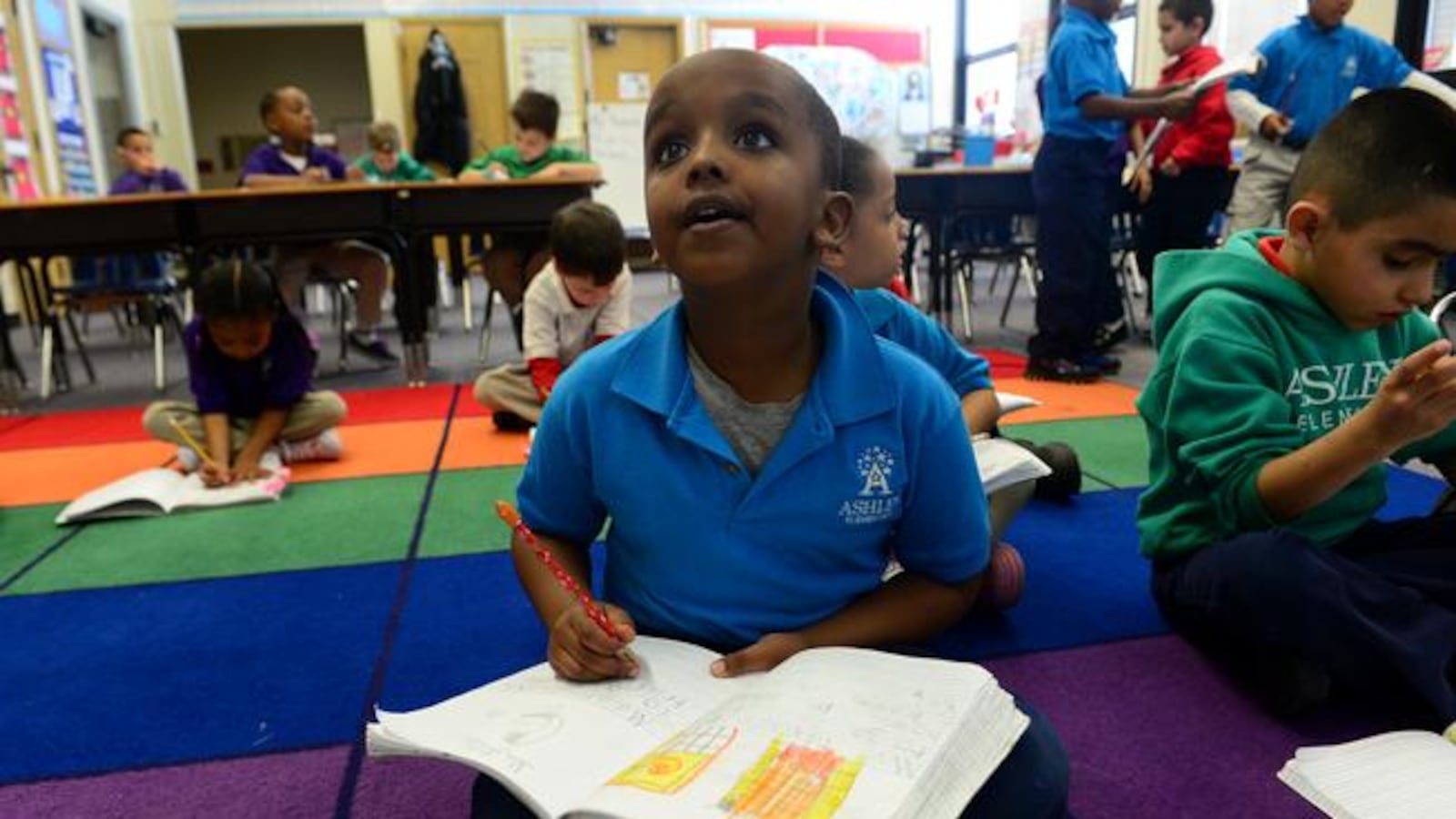After hearing concerns from black educators about how they and their students are treated, Denver Public Schools commissioned a study to capture the experiences of African-American teachers in a school district that acknowledges a history of racism.
The recently released 82-page report found that many feel isolated within the district and see stark contrasts in how black children are handled in and out of the classroom compared to their white counterparts.
In April, the district hired Sharon Bailey, a former DPS school board member who studied the district’s court-ordered school integration program and racial dynamics in Denver, to interview black teachers and administrators about their experiences in the district and how race influenced them.
During several months, Bailey spoke with 70 teachers and administrators who ranged in age from 26 to 74. Some had more than 30 years of experience, while others were finishing their very first year working in education.
Deputy Superintendent Susana Cordova said Bailey will continue her work with the district for the time being.
“We are extending her contract to continue to support the dissemination of the report,” Cordova said in an email. “We have kicked off the creation of a taskforce to create recommendations that may have both policy and practice implications.”
The group will be made up of community members and district employees, and it is expected to make recommendations to the district by the end of the calendar year, Cordova said
Here are some of the most notable points from Bailey’s report:
By and large, teachers who are not black don’t expect black students to do well in the classroom, which affects perception and the vigor with which teachers approach those students, respondents said. A workforce of teachers that looks more like the student population could help black students perform better in the classroom because those students will have someone they can relate to, the teachers and administrators said. Some respondents suggested that teachers get a certification that verifies they can respond to the nuances of another culture, similar to the qualifications for teaching English language learners
There are many teachers who are outright afraid of black students, those interviewed said. That fear plays into how those students are punished in the classroom. Respondents named young white female teachers in particular as being fearful of black students, which can keep them from forming meaningful relationships with those students. The report also asserts that white students are punished differently from their black counterparts. Two teachers from an unnamed school discussed the respective outcomes for two students, one black and one white. The white student, who threw chairs around the classroom, was promoted to a higher math class after someone deemed his actions the result of being bored in class. The black student, who simply balled his fists, was suspended.
DPS has increased the resources available to teach English language learners but respondents said the district has not done the same for black students. Respondents see the moves as overshadowing the needs of both black students and non-English language learners. At many schools, respondents said, black and Latino families are at-odds because of the difference in resources. The increase in pay for Spanish-speaking staff was a point of contention, partly because there is no increase for being able to connect with black students.
Instead of promoting the black professionals already in the district, respondents said DPS brings many of its candidates from out of state, which is perceived as overlooking the homegrown candidates. Many respondents also think that black educators are reprimanded and removed from their positions at a higher rate than their white counterparts. Many of the out-of-state hires have no connection to Denver, and the district does nothing to lessen the learning curve, teachers and administrators said
Just 4 percent of the teachers in DPS are black, and since they are dispersed throughout the city, many are the only black teacher at their school — which those interviewed said complicates their jobs. Some respondents reported becoming disciplinarians by default because of the notion that they relate to black students better. Others said they feel unable to fight passionately for their students because of the looming “angry black woman” stereotype.
More than 90 percent of those interviewed said institutional racism exists in DPS. Hostile work environments and the lack of African-Americans in top leadership positions were both mentioned at length, as were the aforementioned feelings of isolation.

